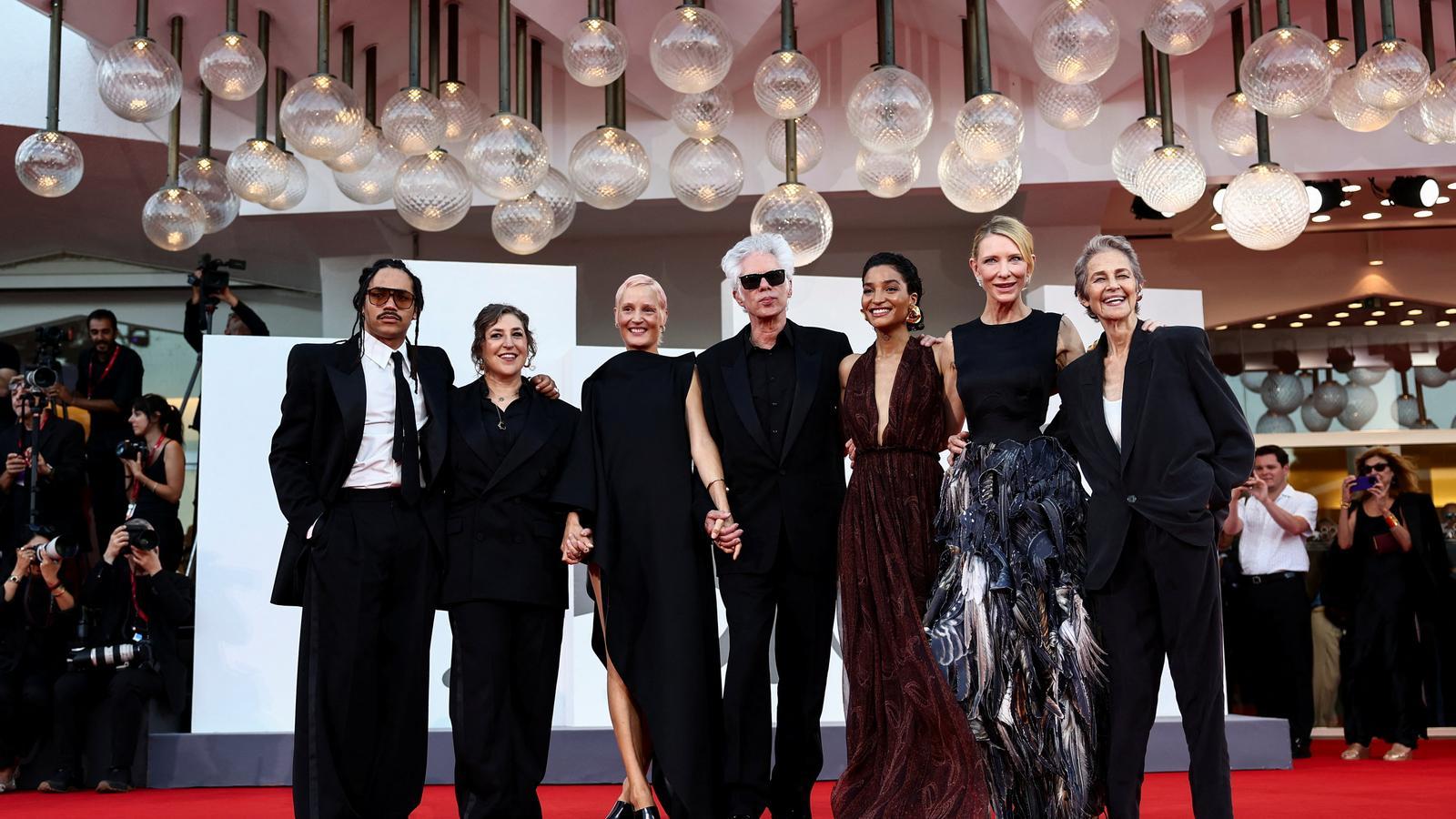Jim Jarmusch sheds light on Venice's darkness
The Ohio filmmaker, a leading figure in indie cinema, releases a wonderful triptych of family stories.

VeniceThe arrival this Sunday of the American filmmaker Jim Jarmusch at the Venice Film Festival was an injection of sensitivity and bonhomie in an official competition that, with the exception of the humanistic adaptation of Frankenstein by Guillermo del Toro, had been marked by some thrillers full of cruelty and misanthropy, like Bugonia by Yorgos Lanthimos either No other choice by South Korean director Park Chan-wook. In fact, major film festivals seem allergic to the comedy genre, unless the humor is written in a sarcastic tone. In this sense, Jarmusch's new film, titled Father mother sister brother, It should be seen as a delicious oasis of delicacy and happiness in a program dominated by violence and fatalism.
Jarmusch had not visited the Mostra since 2003, when the Ohio filmmaker presented a collection of short films entitled Coffee and cigarettes. Now, the great reference of cinema indie repeats the episodic trick by premiering in Venice a triptych of stories that begin the same way, with two siblings who go to visit the house of one of their parents. In the memorable first chapter, set in New Jersey and titled Father, Adam Driver and Mayim Bialik share a car that takes them to the father's house, a Tom Waits who disguises himself as an everyman from provincial America. Then, in the second segment, titled Mother and set in a residential neighborhood of Dublin, Cate Blanchett and Vicky Krieps fulfill the annual ritual of having tea with their mother, a writer of bestsellers played by Charlotte Rampling. And finally, the icing on the film cake comes with Sister brother, in which a pair of African-American twin brothers, living in Paris, visit the home of their parents, who died in a plane crash. "Paris is like my second home; I love that city," Jarmusch noted at the film's press conference.
Poetry cinema
In Father mother sister brother –a title that invites poetic recitation–, the director of Dead Man and Paterson adds a fantastic array of new creatures to its collection of melancholic and immutable characters, and nods to directors such as Buster Keaton and Aki Kaurismäki. However, the reference that shines most strongly in the film's images is the Japanese Yasujirō Ozu, who explored the mystery of family life in dramas and comedies that made minimalism, stillness, and nobility their main hallmarks. Jarmusch champions Ozu's stoic spirit, as well as the Japanese director's ability to find beauty in the everyday, a task that the American director takes on with a poetic vocation, finding rhymes in the dialogue, in the gestures of his actors, or in the color of his characters' clothes.
Jarmusch's luminous visit to Venice was only slightly overshadowed by the controversy surrounding the production company, MUBI, which has been criticized for its financial relationship with Sequoia Capital, a private equity firm with ties to the Israeli military. Jarmusch, who expressed his "disappointment and bewilderment" by the situation, defended that "all the money from big corporations is dirty money." However, the director ofStrangers in Paradise, who has a multi-film distribution deal with MUBI, has noted that it is possible to avoid this issue by not making films anymore, but films are his medium for self-expression.
From Russia with stupor
In addition to Jarmusch's triptych, the Mostra today hosted the presentation of The wizard of the Kremlin, a film in which French director Olivier Assayas adapts Giuliano da Empoli's novel of the same name, focusing on the fictional character of Vadim Baranov, Vladimir Putin's right-hand man. The film, co-written by Emmanuel Carrère, offers a historical chronicle of Russia from the late 1980s to the present day, seeking along the way the keys to the transformation that took the country from communism to the most savage capitalism, and the subsequent return of an authoritarian regime. Paul Dano is in charge of playing the sibylline Baranov, and Jude Law accepts the challenge of bringing Putin to life. In Venice, the British actor spoke about the difficulty of understanding the character: "It's complicated because Putin's public image reveals very little, so I had to try to show little, but feel a lot, because you can't act if you don't find some emotion."
